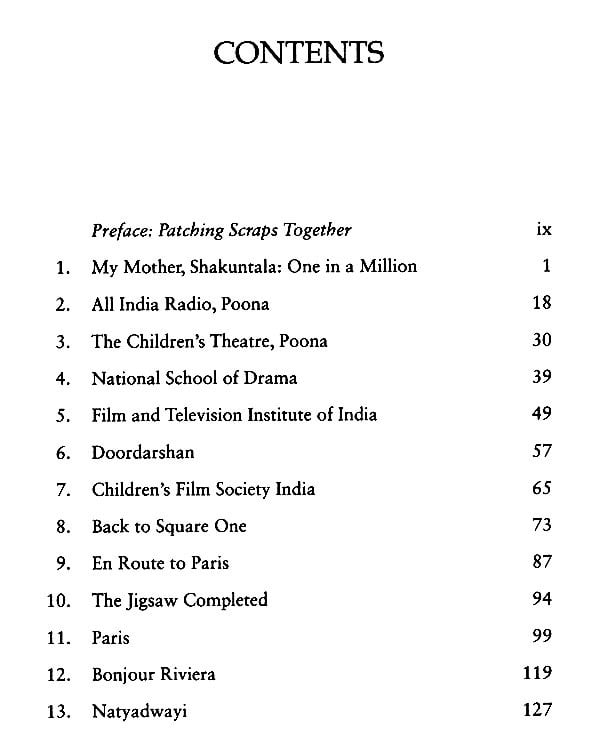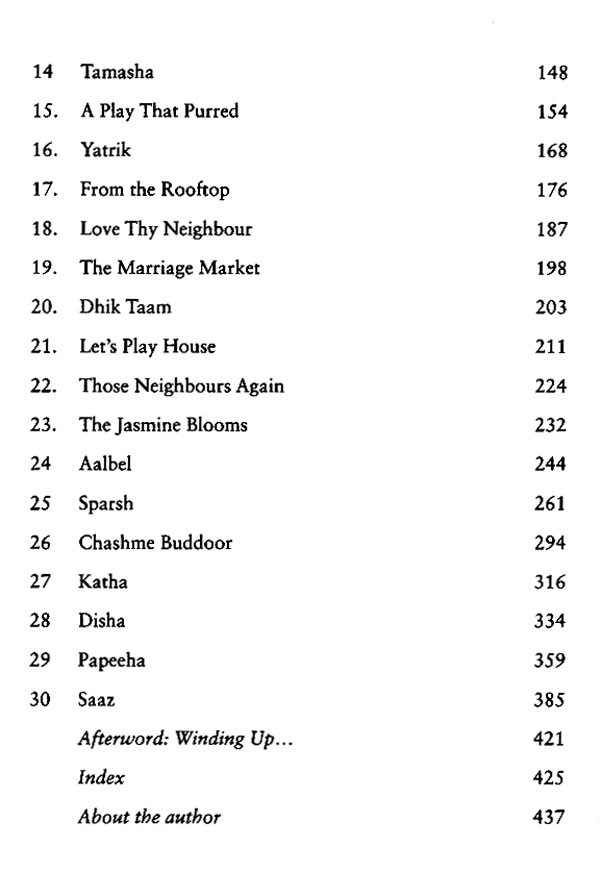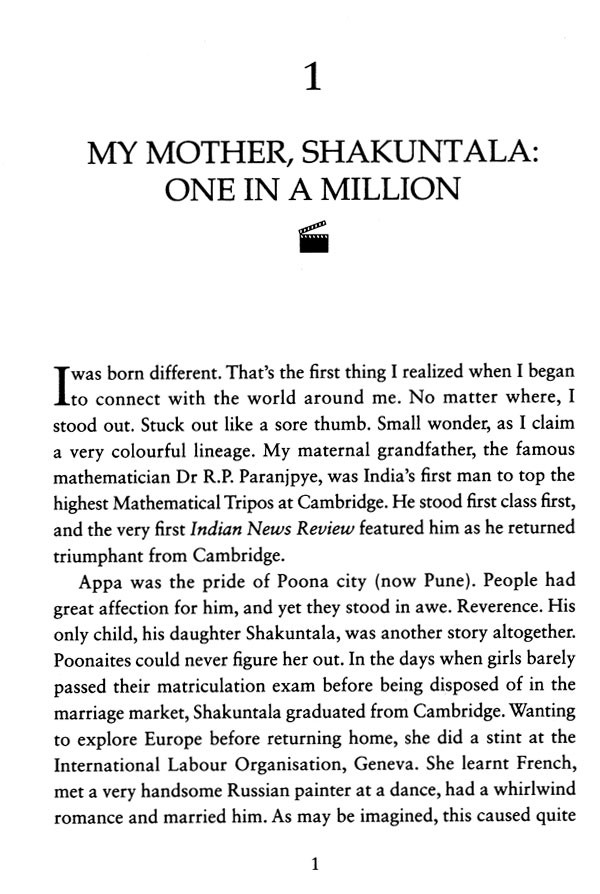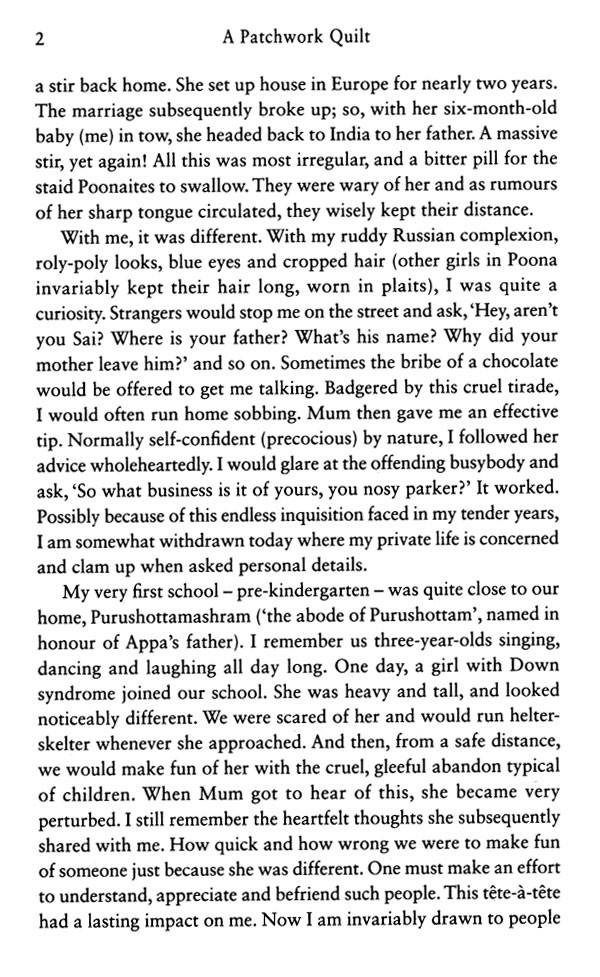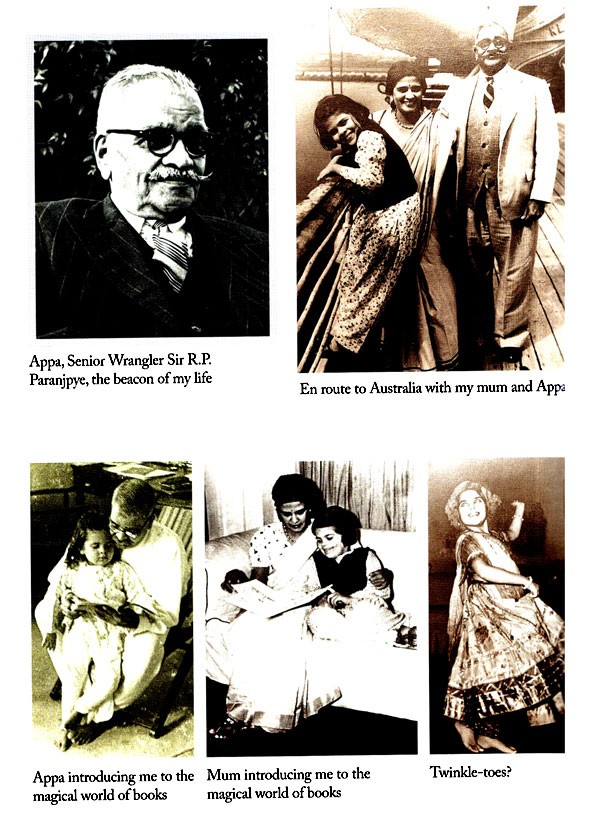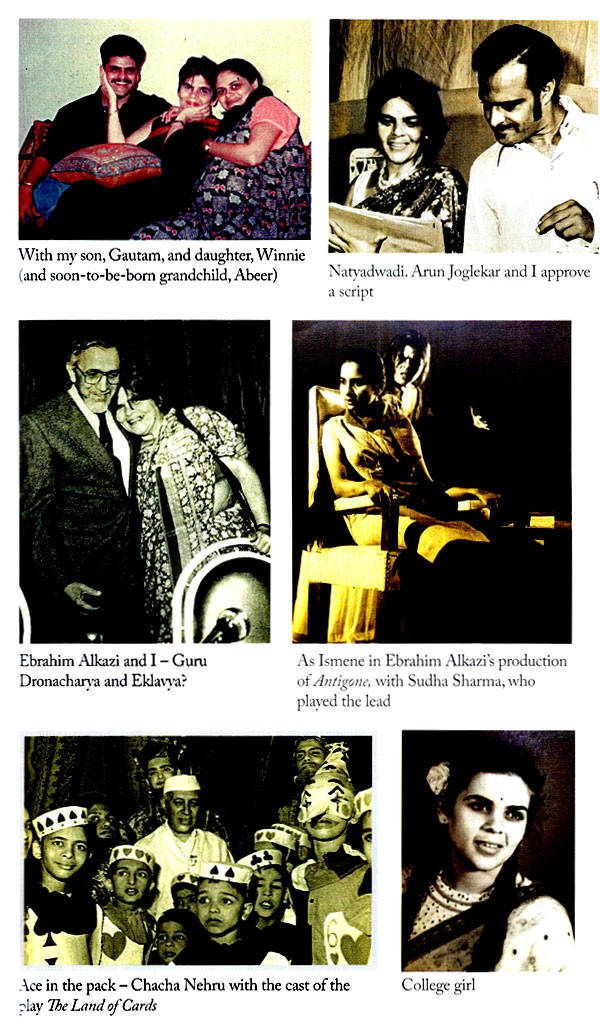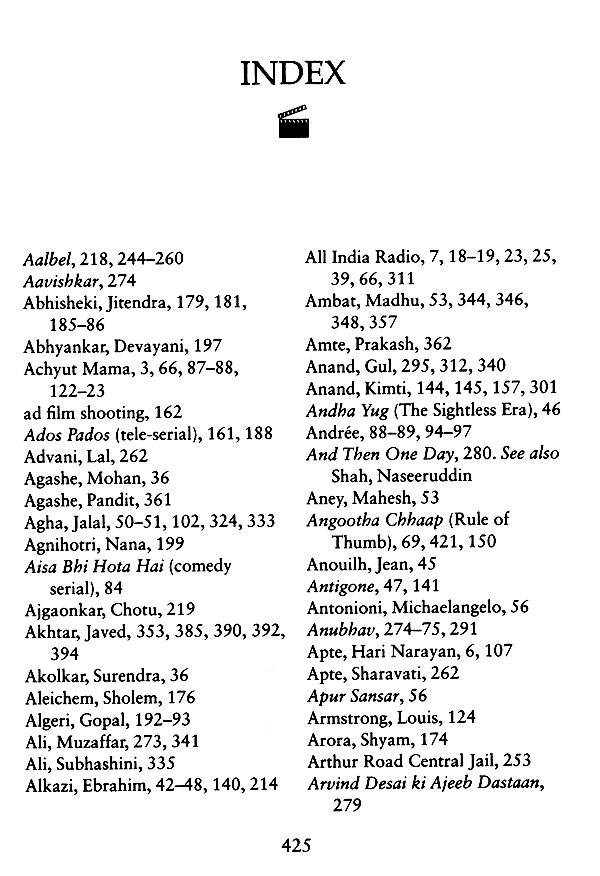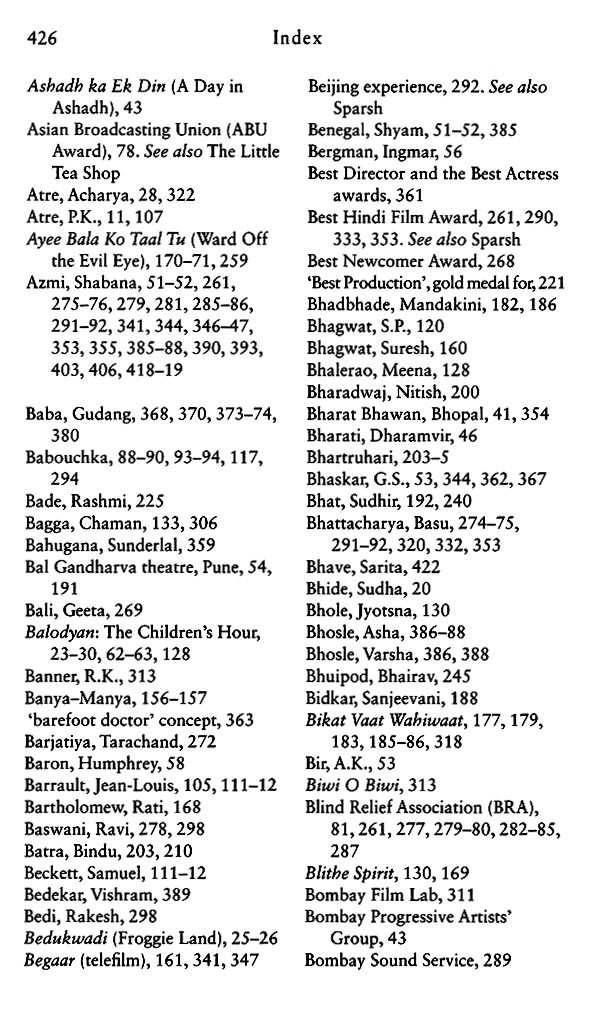
A Patchwork Quilt (A Collage of My Creative Life)
Book Specification
| Item Code: | NBZ284 |
| Author: | Sai Paranjpye |
| Publisher: | Harper Collins Publishers |
| Language: | English |
| Edition: | 2016 |
| ISBN: | 9789390327485 |
| Pages: | 460 (37 Color Illustrations) |
| Cover: | PAPERBACK |
| Other Details | 8.50 X 5.50 inch |
| Weight | 400 gm |
Book Description
Sai Paranjpye is an award-winning multimedia personality. Her first book of fairy tales was published when she was only eight years old. All India Radio, Poona, was her grooming ground where she did Marathi and English announcements, compered children's programmes, and wrote and produced many children's plays. These were then mounted by the Children's Theatre, Poona, which she launched with Arun Joglekar, whom she went on to marry. They were also published in book form, and many of them went on to win state and national laurels.
After graduating from the National School of Drama, Sai wrote and produced numerous plays in Delhi, Bombay and Pune. She then joined Doordarshan as one of its first six producers. Her telefilm, The Little Tea Shop, won her the Asian Broadcasting Union award and, in 1972, she had the honour of producing the inaugural programme of Bombay Doordarshan.
Her landmark films – Sparsh, Chashme Buddoor, Katha, Disha, Papeeha and Saaz - which established her as a scriptwriter and director of excellence, won her national and international accolades.
Sai was awarded the Padma Bhushan for her work in the media in 2006.
A time will come when you will find yourself heading for the final departure lounge, wondering when your flight is to be announced. It is then that you will fervently wish to leave behind some small token of your having been around – not entirely without a purpose. One widely accepted norm is to write one's autobiography; share one's life with the world at large. But this genre of self-revelation has always brought out the sceptic in me. An honest life story should leave nothing out. Every detail of a life well lived should be shared with the reader. All the ups and downs, bouquets and brickbats, achievements and failures, honours and slights, conquests and heartbreaks, friendships and feuds must be faithfully chronicled.
Often, while savouring a particularly juicy defence of some grave injustice, I say to myself, 'Okay friend, this is your side of the story. What about the other party? What is their version?' An autobiography is, by definition, an individual's point of view. And, therefore, biased. You cannot hope to get the whole objective picture. So, with these reservations in mind, I never ventured to pen my personal experiences. They were all locked up, and the key safely tucked away. But then I had second thoughts. I had done a few things in my creative avatar which I believed should be shared. I had tried to reach out to people through my writing and direction via the radio, theatre - children and adult - documentaries, feature films and television. Casting modesty aside, it could be said that my flights of fancy were largely appreciated. So, an account of these creative forays had to be put down on paper, while there was still breath in my lungs and ink in my pen. (I have never made friends with the computer.) But this noble intention was never fulfilled, and my sheets remained blank.
And then suddenly one day I got a call from Loksatta, the popular Marathi daily which is a member of the Indian Express family. Subsequently, I met its editor, Girish Kuber, in the lounge of the Royal Bombay Yacht Club, my favourite rendezvous point. Over coffee and chicken sandwiches, Mr Kuber told me of an exciting idea they were exploring. People who had attained some measure of eminence in their chosen field would reminisce about the road they had travelled. An individual segment would appear every Sunday and the saga of these cherished memories could stretch over approximately five months. He asked me to be the opening batsman to launch the series. This was truly fate intervening! I was being asked to do exactly what I had been planning - and putting off – for quite some time. There was no need to twist my arm. I readily agreed.
My articles began appearing regularly in Sunday's Loksatta, under the heading 'Saya', which, roughly translated, means ‘memory'. I had to perk up considerably in order to meet the Wednesday submission deadline, which appeared with alarming regularity. I had never been in a race against Father Time before, but it felt good to win every week, though often by a hair's breadth.
The shower of mails from readers was a cheering experience, and I diligently manned the unfriendly computer to reply to each message personally.
**Contents and Sample Pages**
